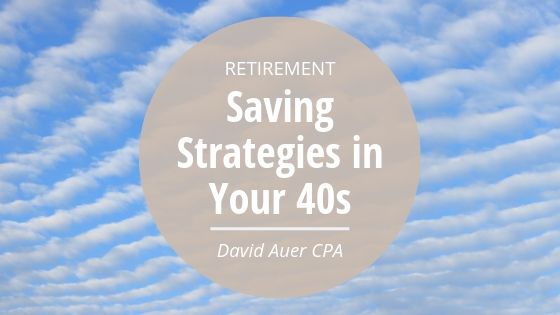By the time you are in your 40s, you should hopefully have a retirement fund established and be set up for a comfortable retirement. Life doesn’t always go as planned. It’s not uncommon for many individuals approaching 50 to need help establishing a retirement strategy. Contributing to a savings account each week might seem adequate, but it’s crucial to know how much you’ll need to retire and develop a path to get there. Keep these five goals in mind to help boost your retirement savings progress.
Eliminate Debt
Debt from credit cards, cars, and other installment payments can consume a large portion of income. Interest rates accumulate rapidly over time. Pay down credit cards and transfer balances to a card with a lower interest rate. Contribute the savings towards an employer-sponsored 401k, especially if you don’t have a large nest egg saved up.
Establish an IRA
If your employer doesn’t offer a retirement plan, set up a Roth IRA or traditional IRA to capitalize on possible tax benefits. Keep in mind that income limits apply, but you’ll be exempt from taxes on what you earn in the future in the account.
Create a Mixed Investment Portfolio
Avoid putting all your investments into a high-risk portfolio. Experts advise putting some of your retirement into stocks since they offer a higher return on investment. Bonds are a safer option, but in your 40’s there is still plenty of time to take a little risk for a long-term payoff.
Examine All Assets
Carefully scrutinize all your retirement savings and assets. Don’t limit yourself solely to your 401k. Roll an old 401k into your current one if you have one from a previous employer. Looking at the bigger picture creates a broad spectrum view that encompasses all aspects of your retirement funding.
Consult a Financial Adviser
If you feel lost while setting yourself up for retirement, consult with a financial adviser. They have experience looking at and setting up portfolios to assist you with solidifying a long-term strategy for retirement. Take care to look for an adviser that isn’t paid based on returns, since it can cause them to be more risky with your investments.

